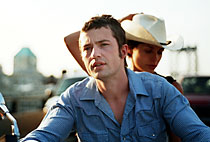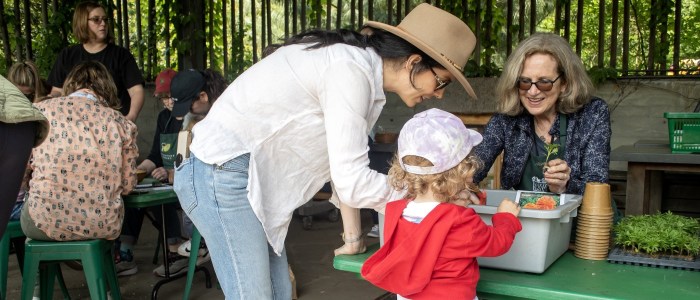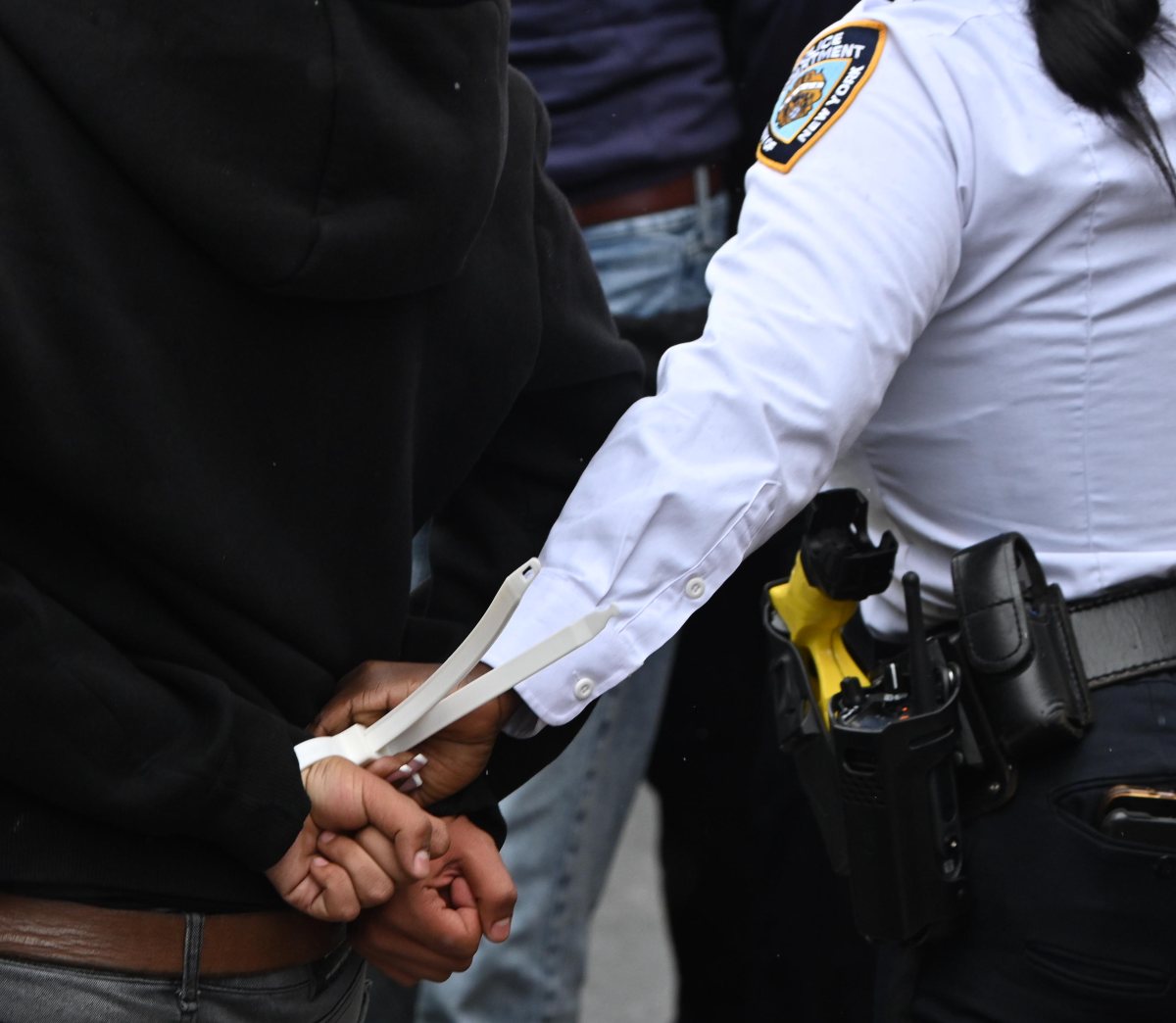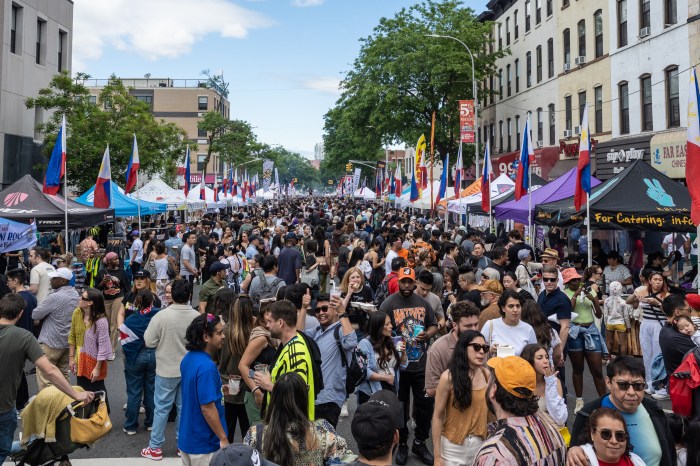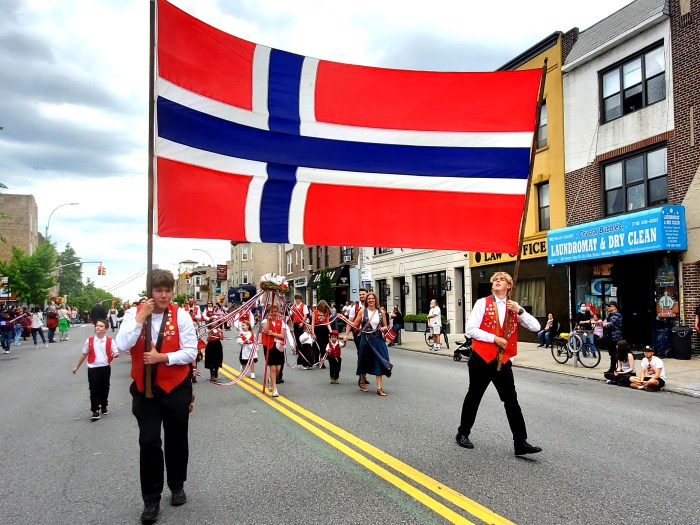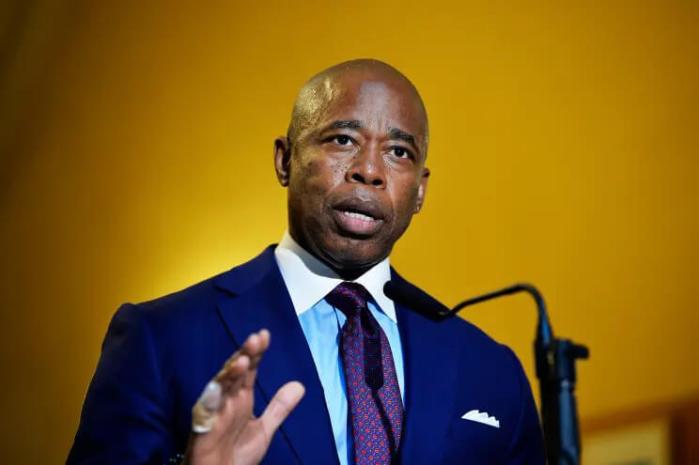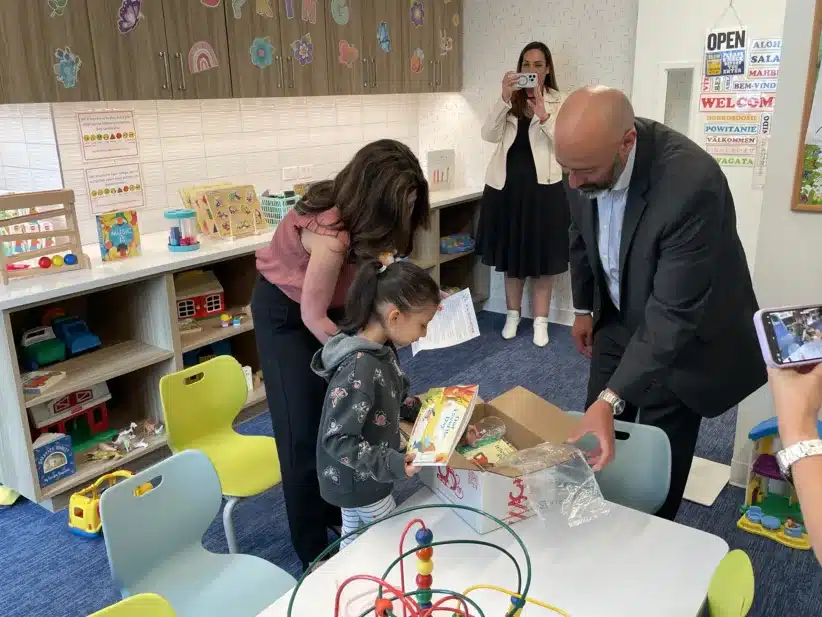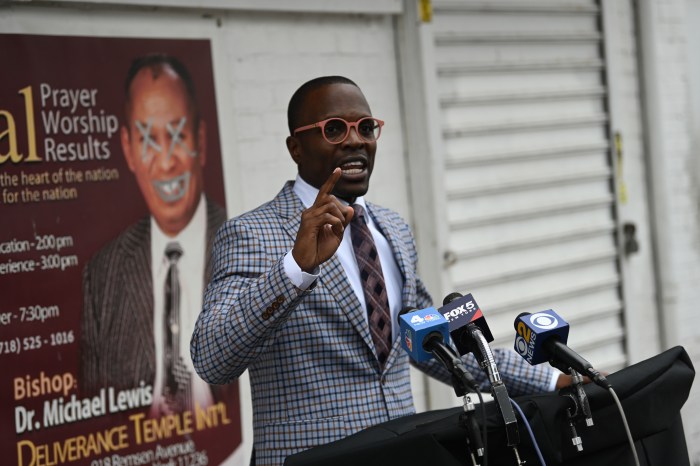"Satellite" may have been an
official selection at the Tribeca Film Festival and recipient
of a special jury prize at the Madrid Film Festival, but Jeff
Winner, the independent movie’s writer-director, says he knows
people are really getting his film because they are approaching
him and telling him about their own "Satellite" moments.
"I guess the ’Satellite’ moments are sort of the chance
encounters that change people’s lives," Winner told GO Brooklyn
in a recent phone interview. "After the Tribeca Film Festival,
I had about 10 different people come up to me and tell me, ’Oh,
my God, I had such a "Satellite" moment! That they
would make that connection was really pleasing."
Shot in Manhattan, Cobble Hill and Brooklyn Heights, this grandchild
of the French New Wave film movement is an unconventional, modern-day
fairy tale about Kevin (Karl Geary) and Ro (Stephanie Szostak),
two disillusioned New Yorkers who fall in love instantly, then
dare each other to mine their lives for meaning.
After quitting their unsatisfying office jobs, the pair sells
its worldly belongings and embarks on a quest for fulfillment
by doing things long dreamt about: sleeping late, reading the
classics, taking pictures, riding a motorcycle, learning to cook
and speaking Spanish.
Unfortunately, the carefree life comes with a hefty price, our
heroes soon learn. As Kevin starts talking about babies – just
as the money is running out – and the couple is forced to steal
to survive, his relationship with Ro begins to unravel, making
both parties wonder how far they are willing to go to be together
on their own, very specific terms.
The provocative new film was partly born of Winner’s own contemplation
of the meaning of life.
"I think I am constantly going through this crisis of balancing
my work life with my ambitions, in terms of lifestyle and quality
of life," said Winner. "My challenge in life is sort
of balancing between these two goals: having a certain kind of
life of artistic living and sort of making ends meet."
So, did working on the film help Winner unearth the answers to
that dilemma?
"I tend to find the things that are challenging me, and
then I always end up sort of finding answers how my characters
find answers," he explained. "And the movie does sort
of beg the question: ’What makes your life meaningful? What matters
to you, for real, when you remove all of the other stuff?’ "
In writing the screenplay for "Satellite," Winner says
he started with the film’s surprise ending and worked his way
backwards. In that way, he was able to distinguish for both himself
and his viewers just where Kevin and Ro traverse the boundary
between living life to the fullest and stomping on other people’s
rights and dreams.
"That became a conceit of the film," he noted. "I
wanted them to be people who did go too far in lots of different
ways, sort of trying to find that line. For me, the movie, more
than anything else, is about our responsibility to ourselves
and our responsibility to the people around us. It becomes entertaining
in some ways. It’s fun to see them cross lines, and then realize
they did so and try to kind of back up and try to figure out
where the line is."
The Georgia-born filmmaker, who now lives in Manhattan’s East
Village, says the decision to have an unidentified little girl
narrate much of the film adds perspective, as well as a feeling
of innocence, to the story.
"This is not supposed to be a movie that you take at face
value," Winner warned. "This is not actually happening.
This is someone’s impression of a story that they heard about
what happened."
Although shooting such a complicated story on a miniscule budget
isn’t an easy task, Winner says he thinks the ’60s-style of "run
and gun" shooting he employed actually enhanced the film’s
unique aesthetics.
"I really wanted it to be beautiful," he said, adding
that time and budget constraints dictated that his small cast
and crew had to run around town, grabbing as many shots as possible,
hence the term "run and gun."
"I really wanted it to be archetypical in some way, where
the images were familiar to you. I wanted you to be instantly
in a world where you were familiar with it. And it was almost
intoxicating, because you were able to focus on other things
because you were so familiar with where you were," said
Winner. "We also played with colors a lot. We used a lot
of reds, greens and golds, and a lot of it was done to keep you
in the world of the film, make you feel like everything was inside
this world, as well as trying to bring out the movie’s emotional
story points."
Sharp-eyed Brooklynites will no doubt notice that a huge portion
of the film was set and shot in the borough.
"The coffee shop is in Cobble Hill and, of course, there
are scenes of the characters coming over the Brooklyn Bridge,
and there is Cobble Hill Park and they live in Brooklyn. Cadman
Plaza is in the beginning," Winner pointed out. "I
think that what’s really nice is [the film] sort of captures
the Brooklyn Heights area, where she is stalking him. You get
this slightly iconographic Brooklyn, but I tried to avoid showing
things you’ve seen 1,000 times in the movies."
Even though his work here is done for now, Winner says he still
spends plenty of time in Kings County.
"I love Brooklyn!" he declared. "I spend every
weekend I can in Brooklyn. My girlfriend and I travel to Brooklyn
all the time – for food! Right now, we’re obsessed with Court
Street and Smith Street. We go to Robin des Bois for brunch all
the time and Hill Diner."
"Satellite" will have an exclusive
run at the Pioneer Theater (155 E. Third St. between avenues
A and B in Manhattan) from Aug. 9-15 at 9 pm. Tickets are $9
and are available at www.twoboots.com/pioneer.
For more information, call (212) 591-0434.


